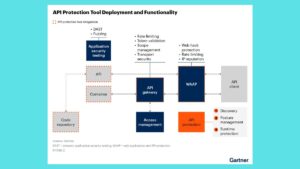How Blockchain is Transforming HR Processes


In recent years, blockchain technology has gained significant attention for its potential to revolutionize various industries. While most commonly associated with cryptocurrencies, blockchain’s decentralized and secure nature is finding innovative applications across sectors, including Human Resources (HR). From enhancing data security to streamlining recruitment, blockchain is transforming HR processes, making them more efficient, transparent, and reliable. This blog explores the key ways blockchain is reshaping HR and the benefits it brings to the table.
1. Enhanced Data Security
One of the most critical concerns for HR departments is the security of sensitive employee data. Traditional databases are vulnerable to breaches, exposing personal information to unauthorized access. Blockchain technology addresses this issue by providing a decentralized ledger that is inherently secure and tamper-proof. Each piece of data is encrypted and linked to the previous one, making it virtually impossible to alter without detection. This ensures that employee records, payroll details, and other sensitive information are kept safe from cyber threats.
2. Streamlined Recruitment and Verification
Recruitment is a time-consuming process that involves verifying candidates’ credentials, work history, and educational background. Blockchain can streamline this process by providing a transparent and immutable record of a candidate’s qualifications. Universities and previous employers can store verified credentials on the blockchain, allowing HR professionals to quickly and accurately verify applicants’ information. This reduces the time and effort spent on background checks and minimizes the risk of hiring based on falsified information.
3. Improved Payroll Management
Managing payroll can be complex, particularly for multinational companies with employees in different countries. Blockchain simplifies payroll management by enabling smart contracts, which are self-executing contracts with the terms directly written into code. These contracts automatically execute payments based on predefined conditions, ensuring timely and accurate salary disbursement. Additionally, blockchain can facilitate cross-border payments by eliminating intermediaries, reducing transaction fees, and speeding up the process.
4. Efficient Employee Records Management
Maintaining accurate and up-to-date employee records is crucial for HR departments. Blockchain technology offers a decentralized and secure platform for storing and managing employee data. Each employee’s record can be stored as a digital ledger, containing information such as performance reviews, promotions, and training history. This ledger can be accessed and updated in real-time by authorized personnel, ensuring that records are always current and accurate.
5. Transparent Performance Management
Performance management often involves subjective evaluations, which can lead to disputes and dissatisfaction among employees. Blockchain introduces transparency to the performance management process by providing an immutable record of performance metrics and reviews. This ensures that evaluations are fair and unbiased, based on verifiable data. Employees can trust that their performance is being accurately assessed, leading to increased motivation and job satisfaction.
6. Enhanced Compliance and Auditing
Compliance with labor laws and regulations is a critical aspect of HR management. Blockchain’s transparent and immutable nature makes it an ideal tool for ensuring compliance. All HR-related transactions and records can be stored on the blockchain, providing a clear audit trail that can be easily accessed and verified. This simplifies the auditing process and ensures that companies are in compliance with relevant laws and regulations.
7. Decentralized Talent Management
Talent management encompasses various HR processes, including recruitment, development, and retention. Blockchain can decentralize talent management by creating a trusted network where employees’ skills, achievements, and career progression are recorded and verified. This enables HR professionals to identify and nurture talent more effectively, ensuring that employees are recognized and rewarded for their contributions.
Conclusion
Blockchain technology is poised to transform HR processes by enhancing security, transparency, and efficiency. From streamlining recruitment and payroll management to improving performance evaluations and compliance, the potential applications of blockchain in HR are vast and varied. As organizations continue to explore and adopt blockchain solutions, the HR landscape will undoubtedly evolve, leading to more robust and reliable processes that benefit both employers and employees. Embracing blockchain technology in HR is not just a trend but a strategic move towards a more secure and efficient future.







